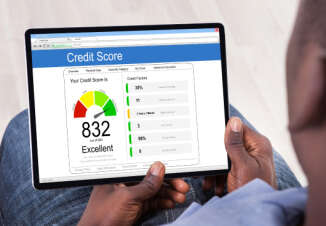The content on this page is accurate as of the posting date; however, some of the offers mentioned may have expired.

Lenders and creditors look at people’s credit scores in order to get an idea of their “creditworthiness”, and the ability to repay, which refers to a borrower’s likeliness to behave in a financially responsible manner such as making payments on time and not letting their accounts get delinquent.
While a credit report does not precisely reveal a credit score, it provides consumers with enough information to surmise whether or not their scored is in good or bad shape. So in order to deduce your general score situation, you must first and foremost:
- Review Your Report
Everyone is entitled to receive, free of charge, a print out of their credit report annually. It is essential to routinely examine your credit report whether or not you plan on applying for credit cards, a loan or a mortgage in the near future. A large part of being financially responsible entails looking over your report while paying specific attention to the following:
- Payment History
Have you established a record of paying your bills on time? The longer and more consistent a history you have of on-time payments, the higher your credit score will be.
- Note the number of inquiries
Every time a creditor requests to review your credit report, your score takes a slight hit, so it makes sense that lenders don’t particularly like to see too many inquiries logged on your report. Be mindful of this to make sure that you don’t apply to open lines of credit unless you really want to carry that card
- Keep your eyes peeled for mistakes
Go over every bit of information on your report carefully and make note of anything that seems strange. If you find something you think may be a mistake or fraudulent, call the reporting agency immediately so you can go about correcting the situation.
Keeping on top of your credit report is the most effective way to gauge the health of your credit score. Identify the mistakes, if any, and then do what you can to fix them. Sooner or later, you’ll be glad you did.







